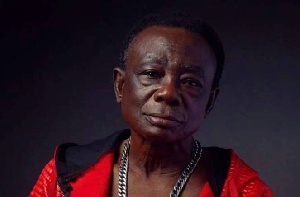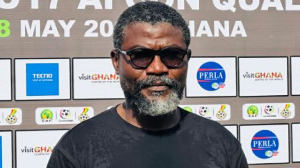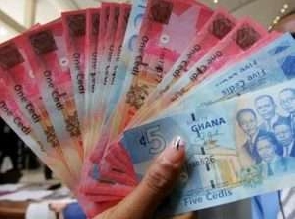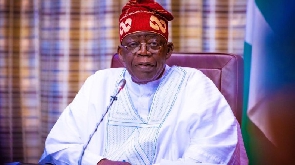“Article 49 (of the 1992 Constitution) is an entrenched provision and Parliament by itself cannot even amend it. How can a court, under the guise of interpretation, give any other meaning to Article 49 (3), other than what is stated in the clause?”
This was contained in the judgment of Justice Rose Constance Owusu, one of the justices on the panel that heard the just-concluded landmark Presidential Election Petition.
Justice Owusu, together with three other justices, among other claims, granted the reliefs regarding unsigned pink sheets by Presiding Officers, over-voting and voting without biometric verification, which three petitioners sent to the Supreme Court following the declaration of John Dramani Mahama as winner of the 2012 presidential election.
Absence of signatures of Presiding Officers
Tackling the claim by the petitioners that some Presiding Officers did not sign the pink sheets that were used in the declaration of the results of the 2012 presidential election, Justice Owusu said “the golden rule of interpretation is that words must be given their ordinary meaning unless same shall lead to absurdity.
“The clause is clear and unambiguous and does not call for the interpretative jurisdiction of this court. None of the conditions as laid down in Tuffour vrs The Attorney-General [1980] SCLR is present here and I would therefore not even attempt to embark on that exercise of interpreting the ‘shall’ or find reasons why the presiding officer might have failed to sign.”
She held that “if even a law properly so-passed cannot co-exist with the constitution, if it is inconsistent with any provision of the constitution, that law to the extent of its inconsistency is null and void. How can the court give effect to that which is unconstitutional?”
In all, she said, the petitioners relied on 924 pink sheets which they presented to Dr. Afari-Gyan, who admitted them. “He also conceded that 905 more pink sheets were unsigned. Among these are 191 included in the petitioners’ 924. The pink sheets without the presiding officers’ signatures therefore came to 1,638 involving 659,814. (sic)”
Justice Owusu said the Constitution mirrored the will and aspirations of Ghanaians and it was the supreme law of the land, adding, “Article 49 (3) therefore imposes an obligation on the presiding officer to sign before the declaration of the results. The reason for this cannot be farfetched. He must sign to authenticate the results. If he does not sign, but goes ahead to declare the results, what will be their probative value?
“Dr. Afari-Gyan told the court that failure to sign is an irregularity. He did not go ahead to say what flows from this irregularity. If the presiding officers failed to sign the pink sheets, that constituted infringement of Article 49 (3) of the constitution and to me that is fatal. It renders the result declared null and void.
“What then happens to the results declared by the presiding officers in contravention of Article 49(3) by failure to sign the pink sheets?” she asked.
She said Dr. Afari-Gyan told the court that in spite of the failure to sign, he would accept the results because the polling agents did sign and that brought her to do proper scrutiny of the situation.
“The polling agent is not an electoral officer and the fact that he has signed the pink sheet cannot legalize that which is otherwise an illegality,” she held.
“The respondents’ case is that annulling the votes of Ghanaians who have exercised their franchise in accordance with Article 42 will be disenfranchising them and thus deny them their right to vote. In this petition, however, where the evidence on the pink sheets on their faces indicates that the election was not conducted substantially in accordance with the law as to the election, and that the act or omission did affect the result, then the result will be invalidated.”
Justice Owusu said the citizen’s right to vote had been upheld by the court in numerous cases and in particular Ahuma Ocansey and Tehn-Addy, adding, “I happened to be part of the decision in Ahuma Ocansey’s case and I still stand by my opinion therein expressed.
“For this reason, I will not by annulling votes under the three categories, indirectly deny the voters their fundamental and inalienable right to vote as enshrined in the constitution.”
She said “consequently, where votes have been annulled as a result of violations, irregularities, etc, I will call for a run off of the elections.”
Over Voting
Addressing the claim of over-voting, Justice Owusu said Dr Afari-Gyan, apart from his ‘classical’ definition, did not dismiss the second instance of over-voting given by Dr Bawumia where the Economist said over-voting is ‘where the ballots found in the ballots box at the end of polls is more than the number of votes actually issued by the voters who turned up to vote’ even though the commissioner had said he had problem with it.
“Nothing is said on what constitutes over-voting in C. I. 75, so I will go by both definitions,” the judge said.
According to her, the petitioners contended that over-voting constituted an abuse of the franchise under the supervision of the 2nd Respondent saying, “It means that the integrity of the polls at the particular polling station has been compromised and the results at the polling station in question cannot be guaranteed and therefore same must be annulled.”
She said the 1st Respondent (President Mahama) had contended that there was no over-voting and that the entries on the pink sheets did not constitute sufficient proof of over-voting.
She said in determining whether the entries alone constituted sufficient proof, the 1st respondent’s counsel argued that it should be done against the background of the constitutionally guaranteed right to vote under Article 42 of the Constitution.
On this, the 3rd Respondent (NDC) had contended that in the absence of any person being alleged to have voted twice or illegally, or any person having been identified as having made a complaint of over-voting, whether formally or informally merely invoking entries on the administrative portion of pink sheets which had been shown to contain errors, could not meet the burden of proof on the petitioners.
“The petitioners did introduce the evidence of over-voting from the face of the pink sheets exhibited by them. Admittedly, it is not on the face of all pink sheets that they established the over-voting. In paragraph 44 of the 2nd petitioners’ affidavit, the pink sheets exhibited exclusively in the case of over-voting are 310 polling stations.”
Justice Owusu said “the petitioners introduced evidence from which the infringement could be found. The entries on the face of the pink sheets constitute prima facie evidence in proof of the evidential burden. At that point, the burden shifts onto the Respondents to lead evidence from which it may reasonably be inferred that no over-voting took place.
“Whereas the 1st and 3rd Respondents contended that there was no such over-voting, the 2nd Respondent (EC), when confronted with some pink sheets, did admit that the entries showed that there were over-voting.
“Much as the 2nd Respondent would not readily admit on over-vote, he told the court that an over-vote if established will result in annulment of the results as it cannot be determined which candidate had benefited from the illegal vote and the integrity of the election would have been compromised.
“There is no gainsaying that over-voting if established would affect the result of the election and impact a sufficient number of votes to have done so. Dr. Afari-Gyan told the court that before annulling results because of over-voting he would do a check on the face of the pink sheet. However, his evidence is that he did not see any pink sheet before declaring the presidential election results. So therefore he did not have the opportunity to do any check to determine from the face of the pink sheets that there was no over-voting.
“Where therefore, the evidence of over-voting was introduced on the face of the pink sheets, and the error/mistake as the Respondents contend, cannot be explained on the face of the pink sheet, then that is an irregularity that affects the result.
“I will consequently hold that where there is over-voting the results must be annulled.”
Voting without biometric verification
According to Justice Owusu, the biometric verification process supervised by the EC came under C. I. 75, regulating the conduct of public elections.
She said that Regulation 18 (1) makes it mandatory for every polling station to be provided with a biometric verification device.
After citing the various regulations regarding the use of biometric verification, Justice Owusu said that “biometric verification process is therefore a mandatory component of the 2012 presidential election.”
She said, “Dr. Afari-Gyan’s explanation as to how column C3 appeared on the ‘pink sheets’ turned out to be false under cross-examination as indeed he later admitted that C. I. 75 (mandating the use of biometric verification came into force long before 20th October, 2012 when the order for printing the ‘pink sheets’ was given.
“It was the evidence of Dr. Afari-Gyan that the commission instructed that the form 1C should not be taken to the polling station at all. How come then that they were taken to the polling stations? If they were not taken, how come column C3 was filled with reference to the form?” she queried.
“It will be recalled that Dr. Afari-Gyan earlier on in answer to a question by my brother Dotse JSC as to how the alleged instructions to presiding officers not to fill in question C3 was given (whether written or oral), he told the court he could not remember.”
She said the petitioners introduced the evidence on the pink sheets, adding that “it was for the 2nd Respondent to establish how the alleged error came about.
“Where a defence goes beyond mere denial then the burden shifts to the defendant – here, the Respondent- to prove the error.”
She said that the pink sheets were generated by the 2nd Respondent, photocopies of which were given to the petitioners and the entries thereon constituted prima facie evidence which needed to be rebutted by the 2nd Respondent, and “failure to rebut same is fatal to the defence of error/ mistake.
“Indeed Dr. Afari-Gyan told the court in one case where the same figure was entered in C3 as it was entered in C1, that it was either or situation meaning either all the voters voted without being biometrically verified or they all went through the biometric verification process.
“To find exactly what happened, he said there should be a resort to the Biometric Verification Device. The Devices were not resorted to tell the court that indeed the figures entered in column C3 were entered in error. These Devices are in the custody of the 2nd Respondent.”
Justice Owusu said that the EC’s case was that even if voters voted without going through the verification process a call for annulment of the votes must be considered in the light of their fundamental right to vote as enshrined under Article 42 of the Constitution.
“The Chairman of the 2nd Respondent told the court that in some cases, the presiding officers were given the discretion to permit certain persons who are well-known in the community to vote without biometric verification. This is in contrast distinction to the NO VERIFICATION NO VOTE slogan and an infringement of Regulation 30 of C. I. 75.”
“Like the Gazette notice published by the 2nd Respondent, the discretion given to presiding officer to allow people like Omanhene to vote without going through Biometric verification Device is ultra vires C. I. 75 and therefore same is void.”
Justice Owusu said that “voting without being biometrically verified is an infringement of the Law which cannot be countenanced under the present dispensation in an election petition. For this and other reasons, I am inclined to annul votes in all polling stations where the violation occurred.”
Duplicate Polling Station Codes
Dismissing the claim on duplicate polling stations, she said Dr. Afari-Gyan was able to explain that in some instances, special voting had taken place at the same polling station or where the registered voters there were too many, the polling station would be split into two – A and B, adding, “This is plausible enough.”
“If therefore there are any such polling stations with the same polling station code, the number will be few and therefore as Dr Bawumia himself told the court, same will be statistically insignificant. The malpractice if anything at all, will not affect the result so that malpractice is disallowed.”
Unknown Polling Stations
In the unknown polling station claims, the judges said that the representative of the 3rd Respondent’s answer to this allegation was that the 22 polling stations, formed part of the 26,002 polling stations for the 2012 Presidential election.
“His explanation is that the petitioners got the spelling of the polling station names and code numbers wrong. He filed Ex “JAN 5” in which he supplied the correct names and code numbers.”
“What is more, the petitioners sent their polling Agents to these polling stations where voting took place in the presence of their polling Agents. I find no substance in this claim and so disallow same.”
Duplicate Serial Numbers
Touching on the duplicate serial numbers claim, Justice Owusu said “in fact the petitioners did not say that no voting took place in those polling stations. If the pink sheets are questionable, what questions were asked and were answered by the petitioners?”
“No case was made under this head and I am inclined to dismiss same,” she held.
Conclusion
She concluded that the number of votes annulled for the three irregularities and violations of over-voting and voting without biometric verification will negatively impact on the result declared by the 2nd Respondent having regard to the votes’ margin between the 1st Petitioner and the 1st Respondent.
“If the invalid votes are deducted from the votes of the two, the 1st Respondent who was declared winner on 50.7% of the votes cast will not cross the threshold of 50%+1,” she said.
“For this reason, I will and hereby declare that the 1st Respondent was not validly declared winner of the 2012 presidential election. The first relief of the petitioners is hereby granted.”
The 2nd relief for a Declaration that Nana Addo Dankwa Akufo-Addo the 1st petitioner herein rather was validly elected president of the Republic of Ghana cannot be granted because of the order for re-running the election in polling stations where the votes are to be annulled.”
“The 3rd relief has been granted in the polling stations where the election is to be re-run. The petition succeeds in part.”
General News of Monday, 9 September 2013
Source: Daily Guide
Constitution is Supreme, says Justice Constance Owusu
Entertainment

‘Mahama has been taking care of me' – JA Adofo opens up
Opinions










